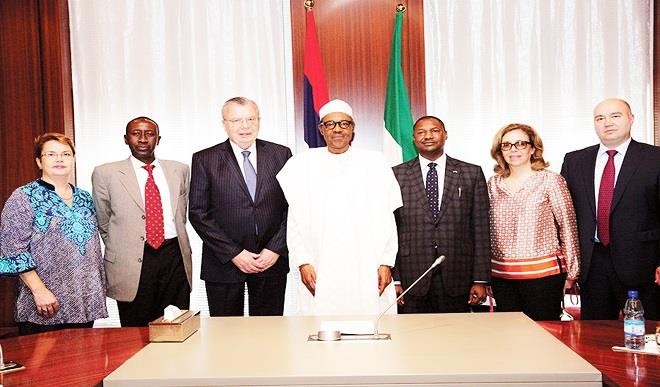UNODC reiterates support for Nigeria’s anti-graft war
The Executive Director of the United Nations Office on Drugs and Crime (UNODC), Yuri Fedotov has reiterated the organisation’s continued support for Nigeria’s anti-corruption efforts. In a statement by its communications officer, Sylvester Atere, UNODC said it was committed to partnering Nigeria to achieve the 2030 global development agenda. “There can be no doubt that […]


The Executive Director of the United Nations Office on Drugs and Crime (UNODC), Yuri Fedotov has reiterated the organisation’s continued support for Nigeria’s anti-corruption efforts.
In a statement by its communications officer, Sylvester Atere, UNODC said it was committed to partnering Nigeria to achieve the 2030 global development agenda.
“There can be no doubt that Nigeria has suffered from the ravages of corruption, terrorism, piracy and other crimes; but it remains fully committed to working with international organizations such as the UN and the European Union to counter these threats,” Fedotov said.
In a farewell visit to President Muhammadu Buhari after a three-day mission to Nigeria, Fedotov informed him that Nigeria could play an active role in encouraging every African countries to fully implement the Doha Declaration, endorsed at the 13th Crime Congress, as well as the Joint Commitment adopted at the UN General Assembly special session on the world drug problem in April this year.
During his mission to Nigeria, the UNODC Executive Director held a series of meetings with government officials including the Minister of Foreign Affairs Geoffrey Onyeama, the Minister of Justice Abubakar Malami, as well as the former Minister of Foreign Affairs, Ibrahim Agboola Gambari.
The UNODC launched the drug treatment counseling facility at Kuje Prisons in Abuja and visited the secretariat of the Economic Community of West African States in Abuja.
The UNODC project is designed to counter corruption, drugs, terrorism, human trafficking, smuggling of migrants, as well as uphold the rule of law and enhance criminal justice. It is funded by the European Union, Japan, Switzerland and Germany.
